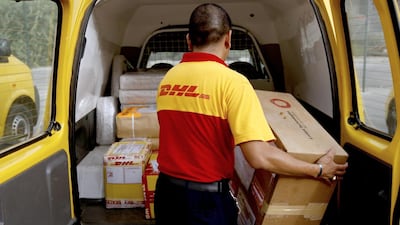Pay attention, job hunters – the 15 best companies to work for in the UAE have just been announced.
DHL, the logistics firm, leads the pack as the best destination for new recruits. This is down to its emphasis on "growth, impact, and pride", according to the Great Place to Work Institute (GPWI), who conducted the survey.
The company was also named as the Middle East’s best employer in Aon Hewitt’s ranking of companies last year.
Next-best was last year’s winner, Microsoft – and that was ignoring the fact that industry analysts predict the new chief executive, Satya Nadella, would scrap the company’s controversial stack ranking system, which involves continually comparing employees against one another.
In last year’s ranking, Aon Hewitt also placed Microsoft second.
Omnicom Media Group, the Swedish firm Ericsson and the Middle East retail firm The One scooped the remaining positions in the top five.
Weber Shandwick, Emirates Transport, Fun City, Hyatt and Estée Lauder, which appeared in the top 15, were included on the list for the first time.
The survey evaluates “levels of credibility, respect, fairness, pride and camaraderie within [employer] relationships,” said David Roberts, the GPWI chief executive.
The institute gleaned its results from confidential surveys completed by staff, and a questionnaire for managers intended to test employers’ human-resources policies.
abouyamourn@thenational.ae

